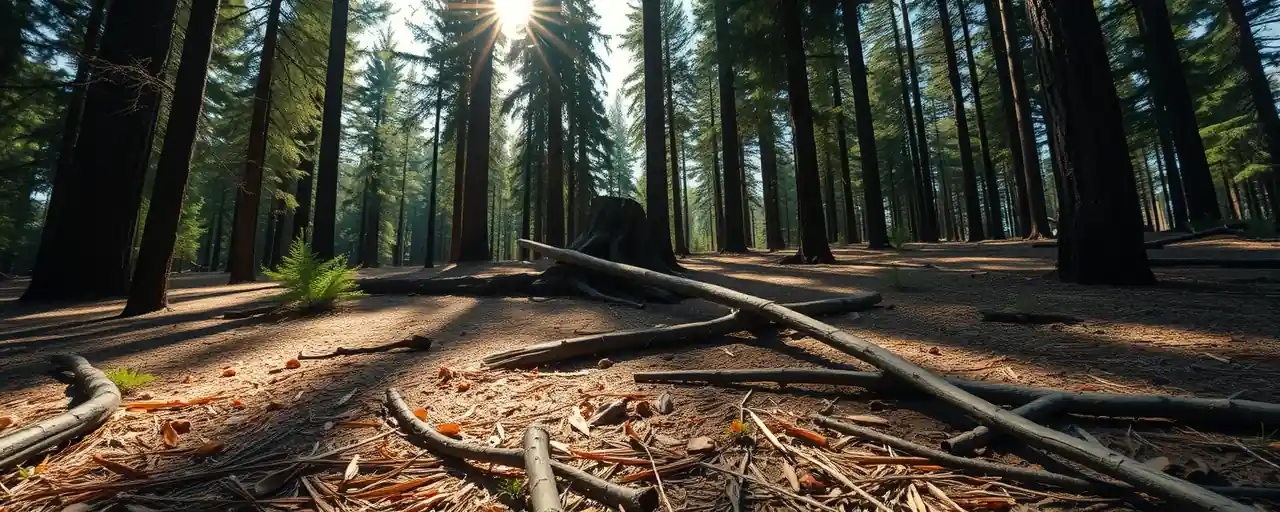Taking Idaho's Voice to Washington
Governor Brad Little of Idaho traveled to Washington, D.C., for a packed week of meetings with federal agencies. His focus was clear: advocate for policies that safeguard Idaho's agriculture, prepare for wildfires, and support national border security efforts. These discussions highlight how state leaders work to ensure their communities' needs are heard at the federal level, blending local priorities with broader national goals.
Agriculture, vital to Idaho's economy, drove conversations with the U.S. Trade Representative and the Department of Agriculture. With trade tensions affecting farmers, the governor sought solutions to ease economic pressures. Wildfire risks, intensified by years of severe fire seasons, prompted talks with the Forest Service and Department of the Interior to strengthen preparedness. A meeting with a senior border security official also explored how Idaho, despite its distance from the southern border, can contribute to federal efforts.
This push reflects a growing trend of states engaging directly with federal agencies. Idaho faces distinct challenges, from market losses to environmental threats, that demand cooperation across government levels. The governor's visit emphasizes the value of these partnerships in addressing issues that shape daily life for Idahoans.
Protecting Idaho's Farms Amid Trade Strains
Idaho's farmers, known for potatoes, dairy, and beef, are navigating tough times due to recent U.S. trade policies. Tariffs on goods from Canada, Mexico, and China have sparked retaliatory duties, costing U.S. agriculture an estimated $27.2 billion in annual export losses. In Idaho, higher costs for equipment and fertilizers, driven by steel and aluminum tariffs, add to the strain. The governor's meetings aimed to secure federal support for growers facing these challenges.
Local farmers and national agricultural groups are calling for trade agreements grounded in science and subsidies to bolster high-value crops and livestock. Some voices defend tariffs as a way to protect American industries, highlighting the complex balance between global competitiveness and domestic needs. These discussions underscore the urgency of finding policies that keep Idaho's agricultural sector thriving.
Bracing for Wildfires With Federal Allies
As wildfires grow more frequent and destructive, Idaho is taking bold steps to prepare. The governor's talks with the Forest Service and Department of the Interior focused on reducing fire risks across the state's vast federal lands. Recent state laws allow Idaho to respond quickly to fires on federal property, addressing concerns about slow federal action on overgrown forests and dry vegetation.
Nationally, lawmakers from both parties are proposing a unified federal wildfire service and a new intelligence center to improve planning. Idaho is also tapping federal grants to support local volunteers and ranchers in early fire response. Some environmental advocates, however, stress the need to protect ecosystems during fuel reduction efforts, urging a careful approach to thinning and prescribed burns.
Idaho's Role in National Border Efforts
Though hundreds of miles from the U.S. southern border, Idaho is playing a part in national security. The governor met with a senior border official to discuss how the state can support federal initiatives. Border apprehensions dropped to 7,181 in March 2025, a 95 percent decline from the previous year, following a national emergency declaration and the deployment of over 9,000 troops and National Guard members.
Views on border security differ sharply. Some leaders prioritize physical barriers and advanced surveillance, arguing these deter unauthorized crossings. Others advocate for hiring more asylum officers and creating legal migration pathways, alongside aid to Central American countries to reduce migration pressures. Idaho's involvement shows how even inland states are drawn into this national conversation.
Looking Ahead for Idaho
Idaho's outreach to federal agencies mirrors a wider pattern of states shaping national policy. Studies show state leaders influence federal priorities by engaging local communities and working with Congress. In Idaho, these efforts have secured funding for fire prevention, agricultural relief, and local law enforcement. Such collaboration highlights the strength of state-federal teamwork in tackling tough issues.
Challenges persist, however. Some Idahoans feel federal trade and land policies fail to address rural realities, while others see national security as a shared responsibility that unites states. Navigating these tensions requires patience and compromise. The governor's meetings are a step toward solutions that serve both Idaho and the nation.
Back in Idaho, the results of these discussions will guide the state's next moves. For farmers, firefighters, and communities, the goal is clear: policies that deliver real benefits, from stronger markets to safer lands. The work ahead depends on open dialogue and a commitment to bridging local and national needs.
